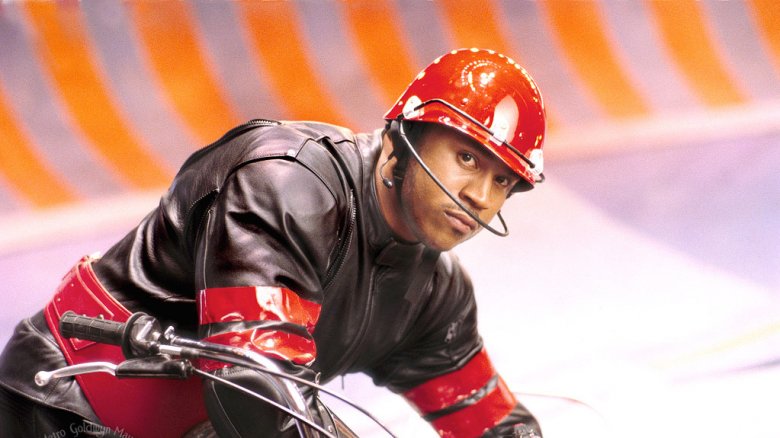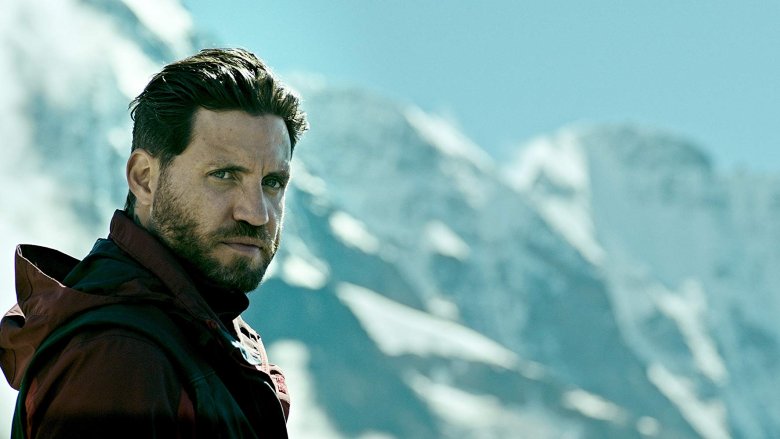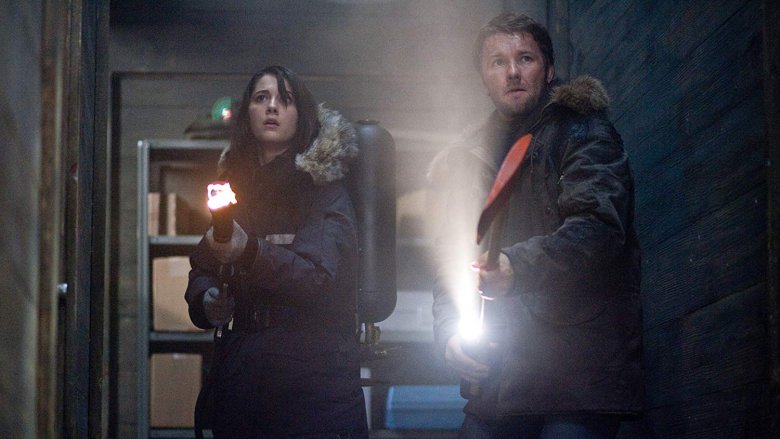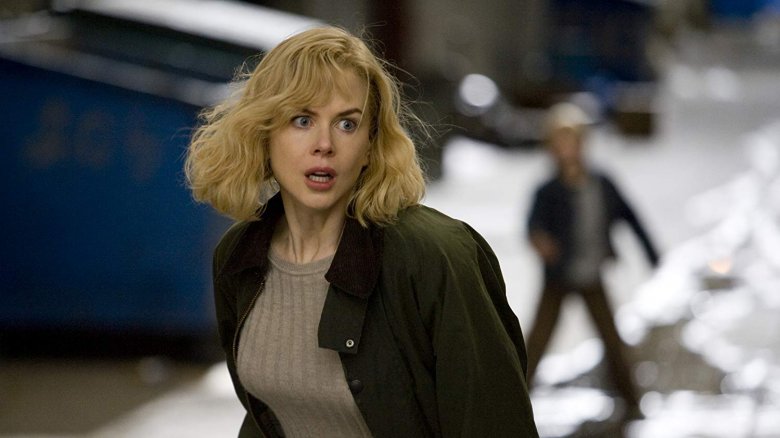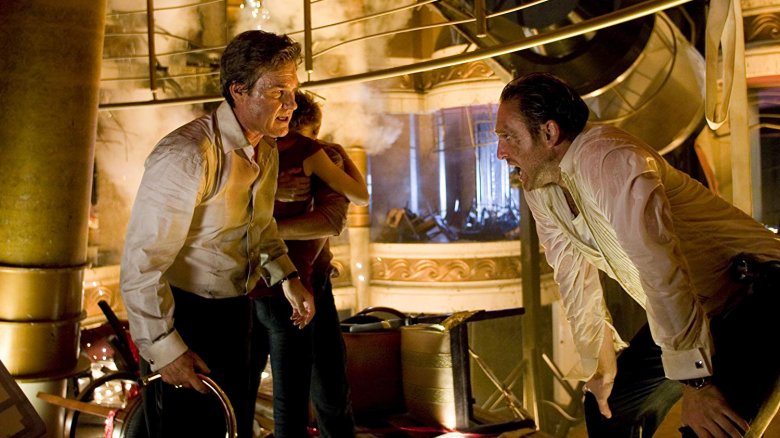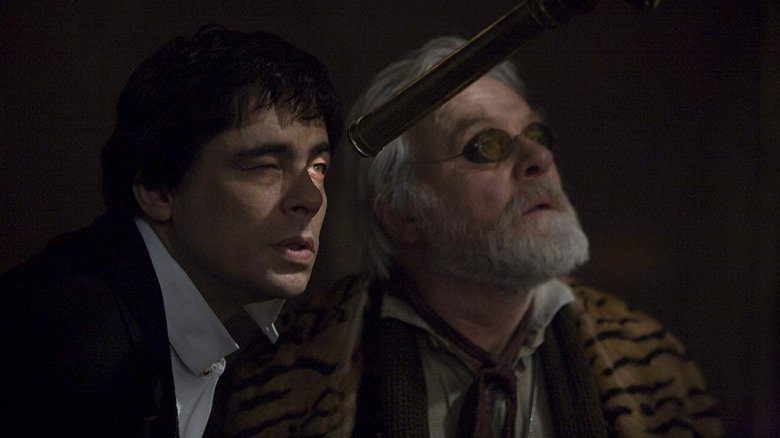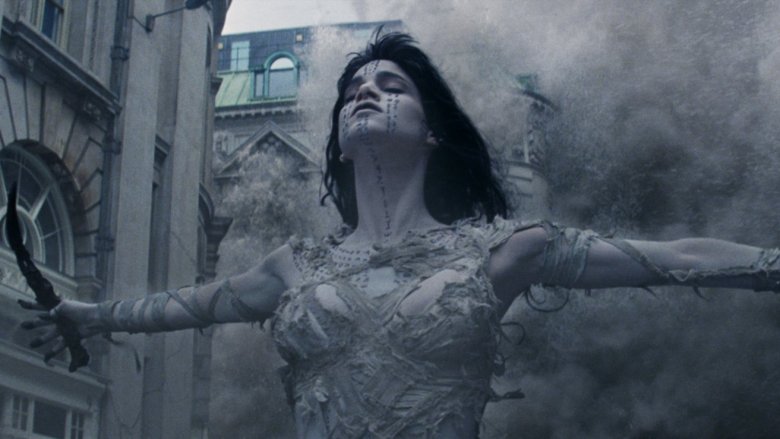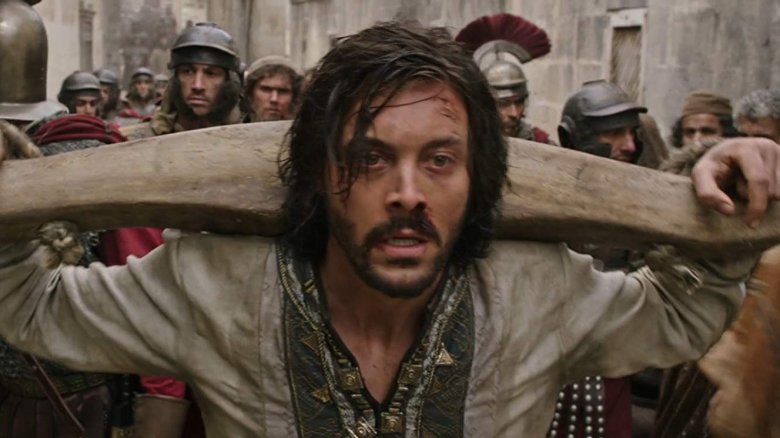The Biggest Movie Remake Box Office Bombs Ever
Remakes are a staple of Hollywood. They allow producers and financiers to take a seemingly known quantity and retool it with new faces and updated visuals, and they allow marketers to say to audiences, "Hey, remember this?" Under the best circumstances, it's a chance to minimize risk, giving the audience a new version of something they already know and love just enough that they wouldn't mind re-experiencing it. There's a reason Disney keeps cranking out remakes of its animated classics.
Sometimes, though, remakes just don't work at the box office. This happens for a number of reasons, from studio interference to inflated expectations to a film just landing at the wrong time. Very often, it turns out audiences just weren't as interested in a remake as certain studio minds thought they would be. Whatever the case, the history of Hollywood is full of remakes that absolutely crashed and burned at the box office. From horror remakes with scary box office returns to disaster films that turned into just plain disasters, here are some of the biggest remake flops of all time.
Rollerball
Audiences aren't often crying out for remakes, which means that the right remake can become a pleasant surprise, particularly with films that aren't universally well-known. That could have been the case with Rollerball, John McTiernan's remake of Norman Jewison's 1975 film of the same name about a brutal, futuristic sport. McTiernan's film opted for a more action-heavy treatment of the concept, and was originally planned to be a hard-R film full of violence. The studio did not see it that way, and that's arguably where the trouble began.
Rollerball underwent extensive reshoots and alterations, including a scene redone in night vision, shadows placed over bare breasts, and blood digitally altered to sweat to tone down the graphic violence. All of this drove the film's budget up and made McTiernan's plans more disjointed. The result was a film surrounded by negative buzz and bad reviews. Rollerball landed with a thud in 2002, grossing just $25.8 million worldwide against a $70 million budget.
Point Break
Sometimes, a remake of a well-received film with an intriguing premise seems like a great idea on paper, and everyone gets on board so quickly and passionately that studios can't see failure coming until they're in the middle of it. That seemed to be the case with Point Break, the 2015 remake of the 1991 action classic about a group of extreme athletes conducting heists under extreme conditions. International distributors entered a bidding war to get their hands on the film when it was announced, and the film was particularly well-suited to perform in China thanks to distribution agreements there.
Unfortunately, China is the only place Point Break seemed to perform well. The film grossed nearly $40 million there, almost a third of its eventual worldwide total of $133.7 million, which was not enough to make the film a success considering its $105 million budget and extensive marketing campaign. In the U.S., it opened on Christmas Day and barely cracked the top ten box office returns that weekend, eventually earning a domestic total of $28.7 million. Later, producer Andrew Kosove would comment that audiences "fundamentally rejected" the film.
The Thing
Technically speaking, the 2011 film The Thing is a prequel to John Carpenter's original 1982 horror classic about a shapeshifiting alien that ravages an American research station in Antarctica (itself a remake of 1951's The Thing from Another World). It's set before Carpenter's film and tells the story of a shapeshfiting alien that ravages a Norwegian research station in Antarctica... but the leads of the film are still American so that audiences in the U.S. would have someone to latch onto. The Norwegian station is discovered by the Americans in Carpenter's original film, and we know the Norwegians lost their battle with the Thing, so this film is basically just an excuse to do more creature effects in a claustrophobic, icy environment. In other words, it was a way to remake The Thing while also being able to say you didn't technically remake The Thing.
The film went through reshoots and an overhaul of various visual effects, ramping up its budget and moving its release date. Still, the film had a prime horror movie slot in mid-October, but audiences just weren't showing up for it. The Thing opened to less than $9 million and went on to a $27.4 million worldwide total against a budget of $38 million.
The Invasion
Jack Finney's novel Body Snatchers has produced four film adaptations, and two of them are still hailed as classics: the 1956 film from director Don Siegel and the 1978 film from director Philip Kaufman. The primal fear of being replaced by someone who looks just like you (and the resulting paranoia such a phenomenon would cause) carries a universal appeal. There's no reason to think the story couldn't be retold yet again for a new generation and capitalize on those fears once more.
The 2007 film The Invasion tried to do just that, and it did so with the star power of Nicole Kidman and Daniel Craig in the lead roles. Sadly, the film's production was notably troubled. It was originally set to premiere in the summer of 2006, but original director Oliver Hirschbiegel's cut was deemed unacceptable by the studio. Substantial rewrites were ordered (and done by the Wachowskis), and director James McTeigue was brought in to direct the new footage. The reshoots helped drive up the budget, and the studio assigned a new release date at the tail end of summer 2007. The Invasion arrived to a dismal $5.9 million opening weekend and pulled in just $40 million worldwide against a reported $80 million budget.
Poseidon
The disaster movie might not be what it once was, but films in that particular subgenre can still work if the right stars make them at the right time. That was not the case with Poseidon, the 2006 remake of The Poseidon Adventure, a 1972 film about a luxury cruise ship that capsizes when a rogue wave hits it. The remake was directed by Wolfgang Petersen (a guy who knows a thing or two about epics) and had a cast of stars including Kurt Russell, Richard Dreyfuss, Josh Lucas, and Emmy Rossum. It also featured visual effects that were good enough to earn it an Oscar nomination.
Despite all of this, audiences just didn't want to show up for Poseidon. The film stumbled out of the gate with a $22 million opening weekend on its way to a worldwide box office total of $181.6 million. That's no small number, but this was also no small film, with a reported budget of $160 million. Factoring in marketing costs and the cut of the earnings that went to theaters, the studio ended up losing a hefty chunk of money, and the disaster movie remake ended up being a bit of a box office disaster itself.
The Wolfman
Of all the classic Universal Monsters, the Wolfman is one that's always kept a relatively low profile among moviegoers who aren't necessarily monster movie fanatics. He's not Dracula or Frankenstein's monster or even the Mummy, so a big-budget blockbuster reboot for the character was always going to be at least somewhat challenging. Still, Universal assembled a team of heavy-hitters for their 2010 film, drafting Benicio del Toro and Anthony Hopkins to star, Seven scribe Andrew Kevin Walker to script, and special effects legend Rick Baker to provide visual effects, among other major talents. Sadly, the film ultimately fell apart during pre-production. Director Joe Johnston was hired as a replacement with just three weeks to prepare to shoot, and he later described the work environment as less than desirable.
"The production was a leaky, rudderless ship in a perfect storm suffering from bad decisions, infighting, reluctance of the powers-that-be to take responsibility, and too many under-qualified cooks in the kitchen," he recalled. Production issues (including various reshoots) drove the budget up from $100 million to $150 million, which meant that the film's $139 million worldwide box office total wasn't enough to carry it into the territory of a success.
The Mummy
Hollywood has tried to remake The Mummy twice now. The first time, in 1999, it worked, and the Brendan Fraser-led film spawned two blockbuster sequels and a spinoff with The Scorpion King. The second time, in 2017, was supposed to be not just a new blockbuster era for The Mummy, but a new blockbuster era for Universal's movie monsters. The film was meant to launch a new shared universe of monster movies dubbed the "Dark Universe," and the studio got no less a movie star than Tom Cruise to lead the way.
Like the title monster herself, box office response to The Mummy wasn't entirely dead, especially not overseas. The film's total domestic gross was a little more than $80 million, but overseas it raked in four times that for a worldwide total of $409 million. Sadly, factoring in the film's enormous production and marketing costs, which are estimated at about $345 million, plus the cut movie theaters take of the earnings, means the film reportedly lost money for Universal Pictures. The Dark Universe was shelved, and the studio is still carving out a new path forward for its monsters.
Conan the Barbarian
Depending on who you ask, the 2011 Conan the Barbarian film starring Jason Momoa in the title role isn't really a remake, but instead a new interpretation of Robert E. Howard's iconic sword and sorcery character. The role is so tied to Arnold Schwarzenegger's Conan films in the 1980s, though, that it was hard not to see it as someone attempting to step into his shoes. Momoa seemed ripe for big-screen stardom, but the film just failed to land with either critics or audiences. It grossed a little more than $21 million domestically and hit a worldwide box office total of $48.8 million, against a reported budget of $90 million. Throw in promotional costs and that's a big loss.
"There's just a lot of things that came into it and sometimes the script just wasn't there," Momoa later said. "I just wanted take a stab at doing Conan and it's out of your control, you can only do so much. I feel like I bled over, and over and over to do the best I could. I feel like we represented him very well. The movie sometimes, it fell short... you can only show up as an actor and be the best you can be".
Ben-Hur
The version of Ben-Hur released in 1959 (actually the second Ben-Hur movie, following a 1925 version) is still regarded universally as a classic Hollywood epic. It's the film that set the record for most Oscars in a single ceremony that has since been tied by Titanic and The Lord of the Rings: The Return of the King, but has never been broken. Its chariot race sequence remains one of the most breathtaking pieces of big screen action ever filmed. If you're going to remake that movie, you have to bring your best, and sadly no one seemed to think that 2016's Ben-Hur did.
The film, starring Jack Huston in the title role, took in a little more than $11 million domestically on its opening weekend, which was good enough for sixth place in a crowded summer movie field. It went on to earn $26.4 million domestically, but did better overseas for a worldwide total of $94 million, just under its reported $100 million budget. With all the marketing involved, including a campaign to sell the film to faith groups that just never paid off, Ben-Hur ended up being one of the biggest flops of 2016.

